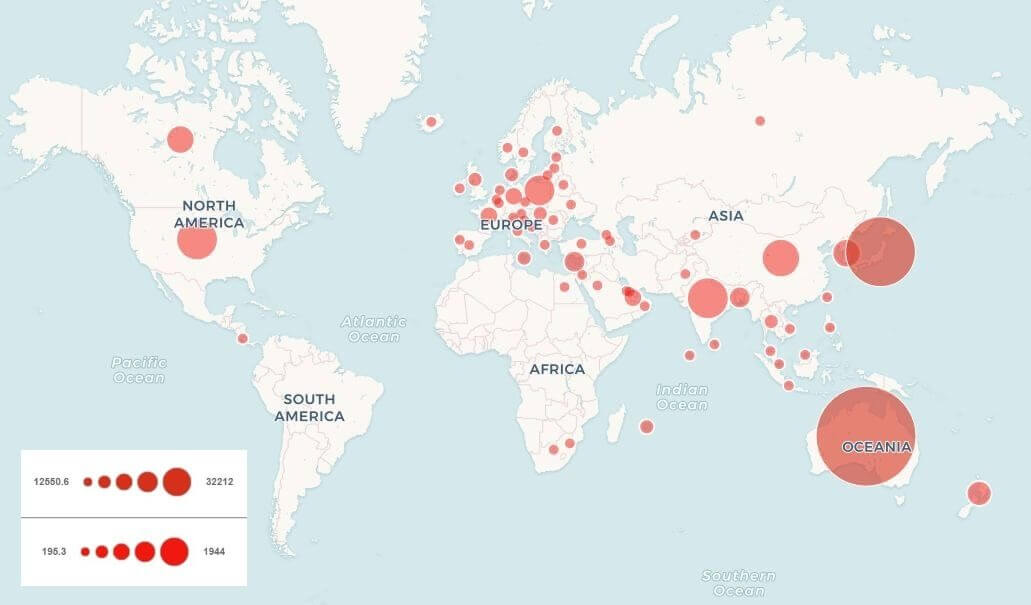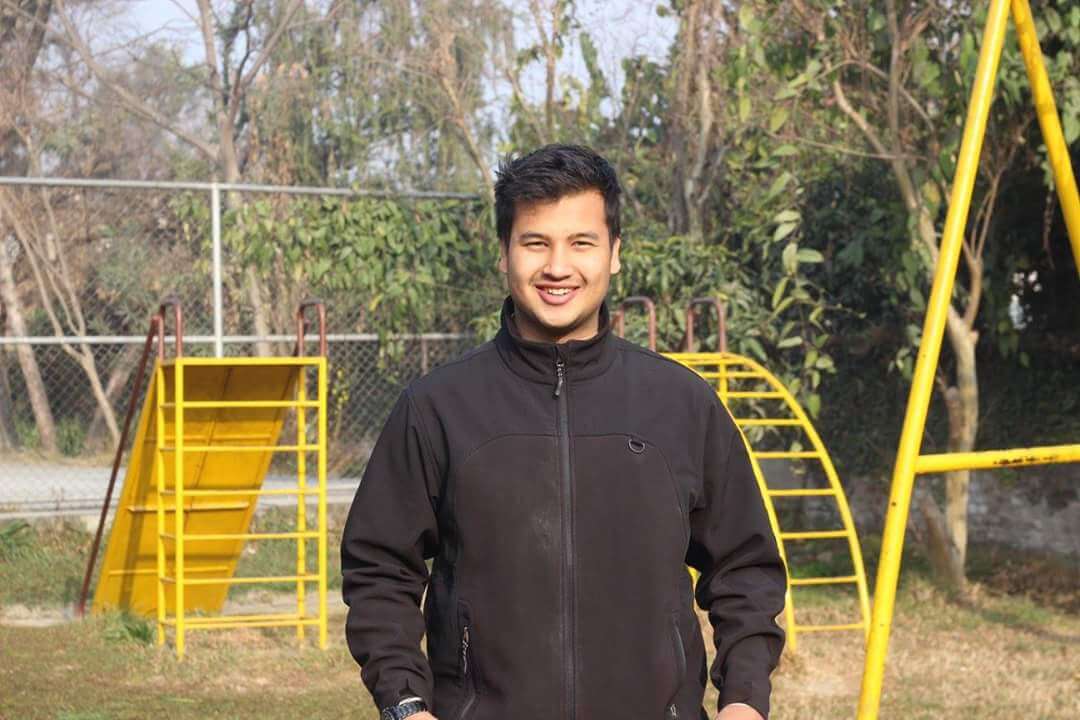Nepali students abroad in pandemic limbo
As universities close due to COVID-19, students from Nepal face uncertainty about their future
When Pradyot Pandey took a semester off from his second year of undergraduate studies at Asia Pacific University (APU) in Japan in August 2019 to come to Nepal for an internship, he had planned to return to campus in late March.
But as the COVID-19 pandemic exploded across the globe and Japan became one of the first countries outside of China to have multiple confirmed cases of the virus, Pandey has been unable to return to APU or receive clarity from APU about his situation.

“I was in the process of having my visa renewed when the virus spread in Japan,” Pandey told Nepali Times in Kathmandu. “Both the immigration department in Japan and the university have halted the process and I am not sure when it will be approved.”
Pandey is in Nepal but other Nepali students are stranded abroad and face uncertainty about their academic future because they have been asked to return home. They also have difficulty finding accommodation if they cannot return to Nepal.
But after midnight Friday, Nepali students cannot come home easily even if they wanted to as the government has banned all travel from EU and West Asia. The restriction includes tourists as well as transit passengers.
The flight ban also includes all travel from Turkey, Malaysia, South Korea, Japan as well as passengers transiting those countries. This means that effective midnight 20 March, all flights to Kathmandu will be cancelled except Singapore, Thailand and Nepal's two neighbours India and China.
Subuna Basnet, a Chevening Scholar at the University of Essex in the UK, was not able to come home to Nepal due to a clause in her scholarship that prevents her from leaving Britain for more than one month.
“I was panicking watching the whole situation unfold and in a situation like this when anyone is vulnerable, you want to be in your own country, in the comfort of your own home,” says Basnet. "Even though the university is communicating with its students, it is difficult when we cannot get any substantial assistance from them at a time like this."


Basnet is thankful that she receives a monthly stipend through her scholarship as many of her peers are on loans, and work service jobs to pay their university fees.
Across the Atlantic in the United States, a national emergency has been declared and students of other nationalities packed their bags and headed home. But there are some Nepalis who cannot afford the ticket home, and also find rent expensive outside campuses which are closed.
Not everyone is as lucky as Ishan Mainali, a junior at Hamilton College in New York, who was able to return to Nepal immediately as the university paid for his ticket, and allowed him to keep his belongings on campus.

“I am lucky that my college provided the assistance that they did at this time,” says Mainali. “I know that others are in more difficult situations so I do feel blessed.”
Mainali’s Facebook post in which he details his observations of Nepali migrant workers coming in from Qatar without health inspections during his trip, has been widely circulated on social media. Like most of the Nepali students who recently flew in, Mainali is self-isolating himself for two weeks.
Ang Sonam Sherpa, a first year undergraduate student at Harvard University in Massachusetts also received support from the administration even though their response was delayed.
"I frankly thought sending everyone home was the best course of action that the university could have done in this situation given the need of social distancing," Sherpa told Nepali Times from the US. "The stakes are just too high as it is literal life and death for so many vulnerable individuals in the society."

Nirupan Karki, a third year law student at NALSAR University of Law in Hyderabad in India was in a fix when the Government of Telangana issued a directive on 14 March for all education institutions to shut down by the end of this month. NALSAR asked all Indian students to leave campus within 48 hours and made an exception for foreign nationals, allowing them to stay but under strict quarantine.
Karki quickly booked an expensive flight back to Nepal to avoid being stuck at the university and arrived home last week. But for those two days, Karki was in a state of panic.
“The whole situation has left me deeply uncertain as I have a lot of unanswered questions,” Karki says. “Mostly I am worried about my studies as the semester has come to an abrupt halt. Despite having online classes for the remainder of the semester, I am unaware about the mode of examination as it is a major grading criteria in our campus.”

Many Nepalis studying in China returned home in late January as the country sought to curb the spread of COVID-19. The Nepal government even sent a plane to evacuate 182 students from Hubei Province on 16 February.

Nishtha Rajbhandari, a high school senior at United World College China, along with other international students were asked to leave the country before the situation worsened as the pandemic spread rapidly around China.
Rajbhandari says, “It is heartbreaking that I lost an entire semester, that too the last one of high school. There are a lot of emotions, and I don’t think anyone has been able to process it at the moment.”
Rajbhandari says her class was looking forward to planning for the last semester. But she adds: “I am just grateful the situation in China is getting better and every person I know is safe, and I hope the whole situation settles soon and things get back to normal again.”
A Florentine quarantine
A Nepali student in Italy shares what life is like under lockdown
Aashna Lama was set to graduate from high school in 2015 when the earthquake hit Nepal. Now, exactly five years the COVID-19 pandemic caused her college in Florence to close down as Italy went under complete lockdown.
“I’ve accepted the fact that I’m not destined for a cap and gown ceremony and my friends in Italy are fervently planning a very Italian graduation for me, laurel wreath crown and everything,” Lama told Nepali Times over email. “I don’t think graduation and I mix very well for the world.”
When the Italian government announced a country-wide quarantine, Lama along with most of the residents did not have much time to react. Lama could not decide whether to stay or to go back home to Nepal.
“I am quite ashamed that I took the situation so lightly in the beginning and brushed it off as a simple flu,” Lama adds. “It was shocking to see how everything was happening so quickly.”

Luckily, most classes are online so her studies are not as badly affected. But her job as a part-time bartender is suspended since all bars and restaurants in Italy have been ordered closed.
Under lockdown, Lama felt restless at first. But now that more than a week has passed, she is getting into the schedule of doing freelance work, devoting time to her art, planning photo shoots, catching up on books and tv shows and practicing her Spanish and Italian.
In the evenings, Lama joins her neighbours as they play music and sing from balconies. The mass showing of solidarity has amazed the art student who says it has boosted her morale during a very trying time. She too, blasted ‘Nessun Dorma’ by Pavarotti and ‘Libiamo ne’lieti calici’ from the Italian opera La Traviata from her window one evening this week.
Lama says it is a shock to see the bustling streets of this historic town as empty as it is. As someone who has lived in the city for four years she says Florence isn’t the same without the tourists throngs.
She adds: “But as we’re saying here, tutto andrà bene, and I truly believe it.”




